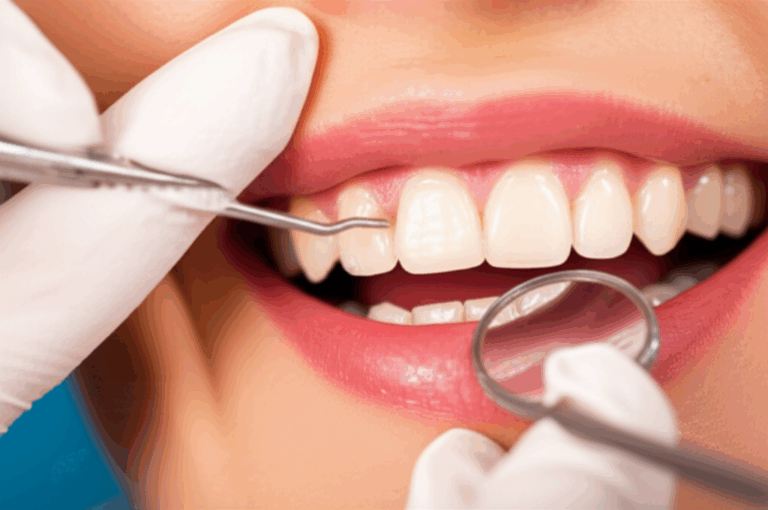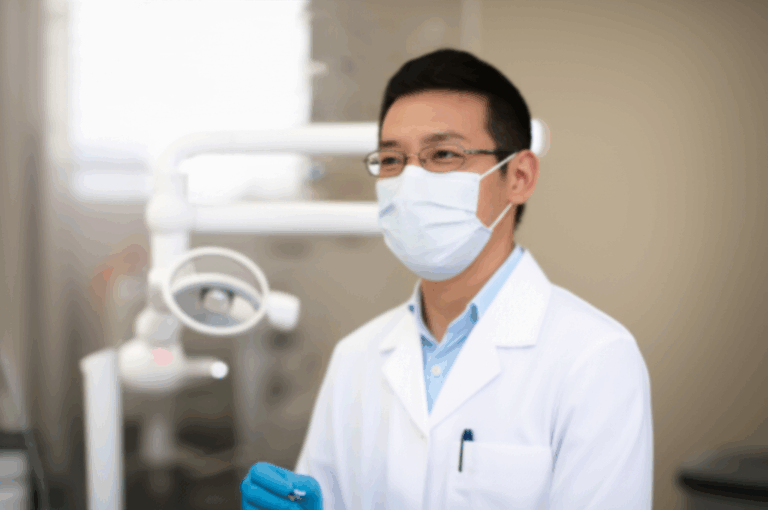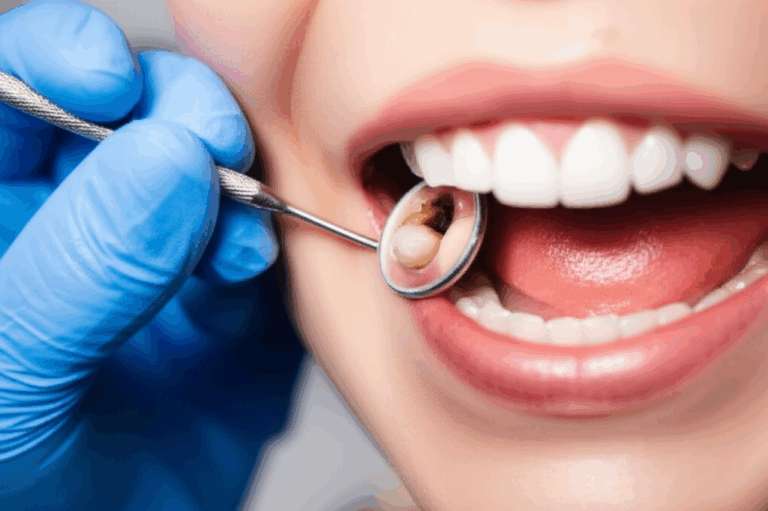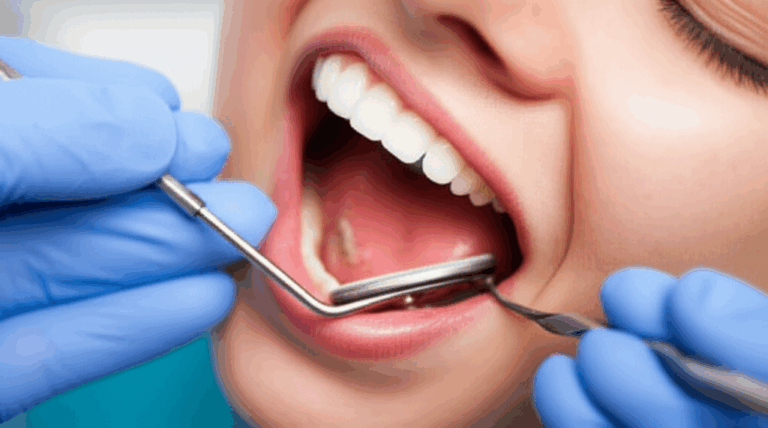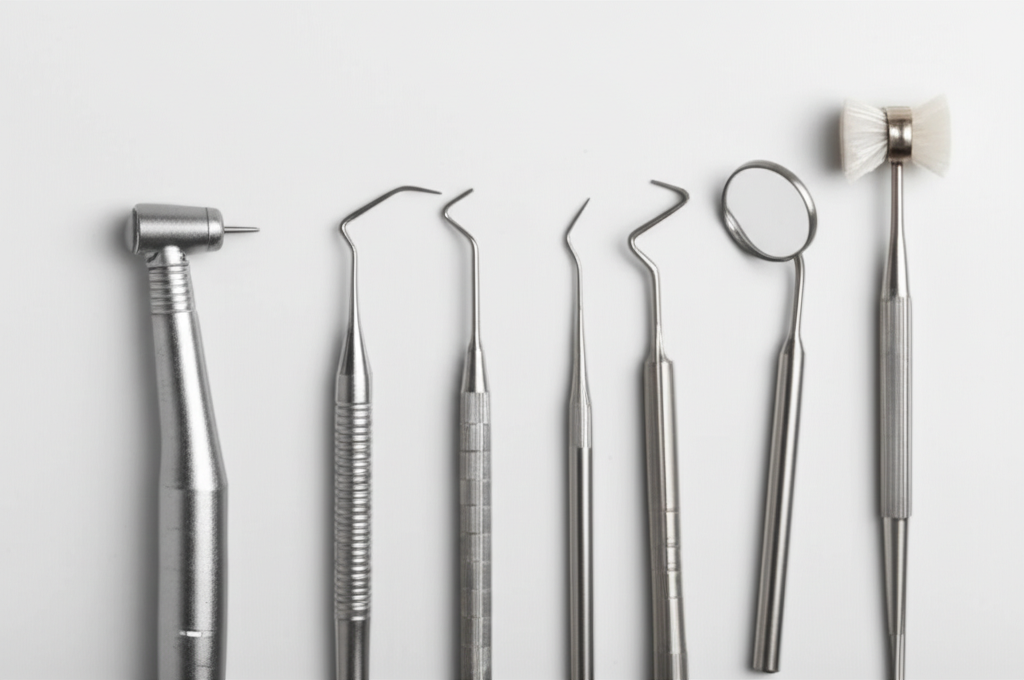
Can a Dentist Become a Dental Hygienist? Understanding the Path, Pros, and Cons
That’s a question you probably never thought you’d type into a search bar: Can a dentist become a dental hygienist? Maybe you’re a dentist yourself, feeling worn out, tired of too much paperwork, or just wanting a job with a better life balance. Or maybe you know a dentist who wants to slow things down. Whatever the reason, you want clear answers, not confusing lawyer talk or vague advice. Let’s look at this together, using plain language, simple examples, and honest info.
In This Article
- The Direct Answer: Yes, But It’s Not a Normal Switch
- Why Would a Dentist Want to Be a Dental Hygienist?
- The Steps: How a Dentist Can Become an RDH
- Differences in What Dentists and Hygienists Do
- Pros and Cons of Changing Careers
- Other Choices for Dentists Who Want Change
- Conclusion: Making a Good Choice
- Frequently Asked Questions (FAQs)
The Direct Answer: Yes, But It’s Not a Normal Switch
Let’s get right to it — yes, a dentist can become a dental hygienist. There’s no secret rule stopping you. But here’s the catch: it’s not something you see often. Most dentists don’t trade out their tools to become a hygienist. It takes work, paperwork, and learning to fill a different role.
It all comes down to the licenses you hold. Even if you have a dental degree (like a DDS or DMD), you can’t just show up and start working as a dental hygienist. Both jobs have different schooling, different jobs to do, and different state licenses. We’ll give you the details below, but know this: you’ll most likely need more school and to pass new tests.
If you were hoping for an easy, “Just show your DDS card and get started,” I’m sorry to say it doesn’t work like that in healthcare. But don’t give up yet. Let’s see why you might want to try this new direction.
Why Would a Dentist Want to Be a Dental Hygienist?
If you’re reading this, you already have ideas. But let’s say it out loud: dentistry isn’t always the easy, high-paying fun job people think. Sometimes it’s more like running a marathon while carrying a stack of paperwork. Here’s why some dentists look at dental hygiene and think, “Maybe that’s for me.”
1. Dentist Burnout Happens
Long hours leaning over people, dealing with insurance forms, and constantly running the business—dentists get burned out too. Studies show more than 1 in 3 dentists say they’re really burned out at some point. The idea of focusing just on patients—not the business headaches—can look very nice.
2. Looking for Work-Life Balance
Ever seen someone clock out at 5 and leave all work behind? Dental hygienists often have a set schedule. They usually don’t get work calls at night and don’t have to run the business. If you’re a dentist wanting more family dinners and fewer late nights in the office, you can see the draw.
3. Money Pressure and Debt
Surprised? It’s true. Dentists are some of the most in debt—dental school often leaves people with over $300,000 in student loans (according to American Dental Education Association). Some dentists think about dropping to a hygienist’s salary if it means less stress and no office bills.
4. Loving Patient Care & Prevention
Some people just love cleaning teeth, teaching people how to care for their mouths, and helping prevent problems. Hygienists spend more time on education and stopping problems before they start, which some former dentists like better.
5. Less Legal and Office Work
Running a dental office means handling payroll, insurance, rules, and malpractice risk. RDHs don’t deal with much of that. They just show up, help patients, and don’t have as many office headaches.
6. Getting Ready for Retirement or a Slower Job
Older dentists who want to slow down sometimes work part-time as hygienists. It’s steady, less stressful, and lets them keep working at a more relaxed pace.
So, if you ask, “Why would anyone make this switch?” — now you know. For some, these upsides are worth it, even with the trade-offs.
The Steps: How a Dentist Can Become an RDH
Now for the big question: How does a dentist become a registered dental hygienist (RDH)?
Here’s what you need to do, step by step:
1. Is My Dental Degree Enough? (School Requirements)
Short answer: Most of the time, no. Even if you finished dental school—if you have a DDS (Doctor of Dental Surgery) or DMD (Doctor of Medicine in Dentistry)—you almost always need to go to dental hygiene school. Most states want you to finish an accredited dental hygiene class, which usually takes 2 to 3 years for an associate’s or bachelor’s degree.
Some states or schools may let you skip a few classes because of your dental background. But you usually can’t test out of the whole thing. Ask your local State Dental Board or schools for info about transfer credits. It really depends on where you live.
2. Go to Dental Hygiene School:
You’ll have to take a dental hygiene program approved by the American Dental Association’s Commission on Dental Accreditation (CODA). Some things will be review for you, but you’ll also learn new things about public health, teaching, and hands-on hygiene work.
Program types:
- Associate Degree in Dental Hygiene (2–3 years)
- Bachelor’s Degree in Dental Hygiene (4 years, unless you already did one before)
3. License Exams:
Getting your RDH license means passing a few important tests:
- National Board Dental Hygiene Examination (NBDHE) – this is a written test.
- Clinical Board Exam – a hands-on test with real or fake patients, run by a regional or state board.
- State Law and Rules Test – covers your state’s dental rules and ethics.
4. State Rules:
This part is tricky. Every state is different. Some are a little more open to dentists who want a hygiene license; others treat you like any new student. Your experience helps, but you still have to follow all the steps.
Important tip: Always check with your state’s Board of Dental Examiners or Board of Dental Hygiene. Ask them:
- What you need to apply to a program
- If any of your classes or training will count
- If there’s anything special for dentists or those trained outside the U.S.
- If there’s a “fast-track” option (not common, but it’s worth asking)
5. Extra Steps for Dentists Trained Outside the U.S.:
If you went to dental school in another country, you may need an extra check on your records. Some dentists trained outside the U.S. find it easier to become a hygienist than to get a dentist license here. Still, you’ll have to finish a CODA-approved dental hygiene program and pass the tests.
Differences in What Dentists and Hygienists Do
So, you finished dental school, worked on crowns, bridges, dental implants, maybe even ran your own digital dental lab. What would change if you became a hygienist?
Let’s keep it simple:
Dentist (DDS/DMD):
- Find and treat dental problems like cavities, gum disease, and infections
- Do treatments and surgeries like fillings, crowns, root canals, and pulling teeth
- Write prescriptions for medication
- Make big treatment plans for patients
- Own and run a dental office (if you want)
- Lead and supervise the team
Dental Hygienist (RDH):
- Prevent problems: Cleanings (scaling, polishing), fluoride, and sealants
- Teach people about caring for their teeth and stopping disease
- Take and develop dental x-rays
- Check for early signs of mouth problems
- Usually work while a dentist is nearby—some states let hygienists work on their own, but only in some cases
What’s the main idea?
As a hygienist, you help stop dental problems and teach patients, but don’t diagnose or do big treatments. If you’re used to being the boss and making big choices, being a hygienist is like going from flying the airplane to being a passenger. Some find that freeing—others find it kind of boring.
Pros and Cons of Changing Careers
Let’s be honest: No big career change is all good. Here’s what you can expect.
Pros of Becoming a Dental Hygienist if You’re a Dentist
- Less Stress: No office to run, no payroll or insurance to manage.
- Better Hours: Set work time, off when the office closes, easier to plan days off.
- Focus on Patients: More one-on-one time to clean teeth and teach patients.
- Lower Legal Risk: No big procedures, less chance of lawsuits.
- No Office Bills: You don’t pay rent or buy equipment.
- Part-Time Options: You can work less if you want or need to.
Cons of the Move
- Big Pay Cut: According to the U.S. Bureau of Labor Statistics, in 2022, dentists made about $160,370 a year, dental hygienists made about $87,530.
- Not the Boss: You’ll work while a dentist is in charge and have less say.
- Back to School: You’ll review things you already know and take new classes.
- Cost and Time: Tuition and exams aren’t free.
- Might Feel Overqualified: Some people may ask why you “stepped down” or you might feel out of place.
- What People Think: People may not get your reasons, unless you tell them.
A simple way to think of it:
It’s like a pilot choosing to fly short, local trips instead of long international flights—lower pressure, fewer people, but also less money and attention.
Other Choices for Dentists Who Want Change
Maybe you’re thinking, “Changing careers is a big step. Is there any other way to make things easier?”
You bet! Before you try something completely new, think about these lighter changes:
1. Specialize
Not every dental specialty is busy or stressful. Public health dentistry or oral pathology can have steadier hours and less pressure. Or you can become a dental teacher—teaching and research can offer a more regular schedule.
2. Teaching
Share what you know with dental students. You can teach in a university or dental school, split time between seeing patients and teaching, and usually have more control of your schedule.
3. Public Health Dentistry
Join a public health clinic if you care most about stopping dental problems before they start. Teamwork is common and there’s less pressure to bring in money.
4. Consulting or Management
Switch to dental consulting (helping others run offices or stay within the rules), or check out jobs with dental companies, insurance, or even working at a digital dental lab.
5. Corporate or Employed Dentist
Work for a big dental group or service company. You can skip owning a business and just focus on dentistry.
6. Change Your Practice
Reduce your hours, hire help, or sell your office and work as an associate instead. Sometimes a small change is all you need for a better life balance.
7. Non-Clinical Jobs
Think outside of patient care—insurance, product design, sales, and research jobs all need people with dental know-how.
Before signing up for hygiene school, look around. A small change may be all you need.
Conclusion: Making a Good Choice
Moving from dentist to dental hygienist isn’t common, but you can do it if you really want it. The rules don’t say no. But—you’ll need to go through dental hygiene school, pass a new set of tests, and get a new license. You’ll give up being the boss, making more money, and doing more treatments, but you may deal with less stress and have better work hours, focusing on helping people avoid problems.
The right choice depends on what matters most to you.
Here’s what you can do now:
- Look up your state’s dental hygiene license rules
- Contact your local [dental board or dental hygiene school]
- Ask other dental workers about their choices
- Think hard about what’s making you want to change—and if a smaller step would help
Remember, it’s okay to put your own health and happiness first. If you want more family time, less paperwork, or just a new way to help people—explore your options.
Frequently Asked Questions (FAQs)
Q: Can a dentist do hygiene work without an RDH license?
No. In the U.S., only people with an RDH license can call themselves a dental hygienist and do hygiene tasks. Even if you are a licensed dentist, you cannot skip the hygiene license.
Q: Is it common for dentists to become dental hygienists?
No, it’s pretty uncommon. Most dentists change their practice, find new roles, or work fewer hours instead of switching careers. But it does happen sometimes, mostly for personal or family reasons.
Q: What’s the hardest part for a dentist becoming a hygienist?
The toughest part is getting licensed—doing more school and more tests you might feel are repeat—then getting used to a whole different work role.
Q: How much less money does a dental hygienist make vs. a dentist?
On average, dental hygienists make about half the pay dentists do ($87,530 for RDHs versus $160,370 for general dentists, according to 2022 BLS data). Pay depends on location.
Q: Do dentists from other countries have an easier time becoming a hygienist?
Sometimes. Many foreign-trained dentists find it’s easier to become a hygienist than to meet the tough rules for U.S. dentist licensing. But you will still need to finish a U.S. dental hygiene class and pass the tests.
Your Healthy Takeaway
- A dentist can become a dental hygienist, but it means more school, more tests, and a new license—not an easy switch.
- Why do it? Burnout, wanting more free time, debt, wanting more time teaching patients, or getting ready to retire.
- The process depends on your state, but usually means going back to school.
- Main differences are who’s the boss, how much you make, and what jobs you do each day.
- Before jumping in, see if simple changes can help you feel better about your work.
- No matter what, put your well-being first—everybody wins when their dental professional is happy at work.
If you want to talk more about your options, reach out to a teacher, your state dental board, or people who have made a similar move.
Remember: In dentistry, there’s more than one way to help people—find the path that makes you look forward to your day, and you’ll help others smile too.
Sources:
American Dental Association (ADA), American Dental Hygienists’ Association (ADHA), American Dental Education Association (ADEA), U.S. Bureau of Labor Statistics (BLS).
Related Reading:
Interested in the latest technology that helps both dentists and hygienists? Check our guide to digital dental lab changes.
Want to know more about crowns, bridges, and how labs make them? See how a top crown and bridge lab can help patients get better results.
Healthy dental staff means healthier, happier patient smiles—for life.

